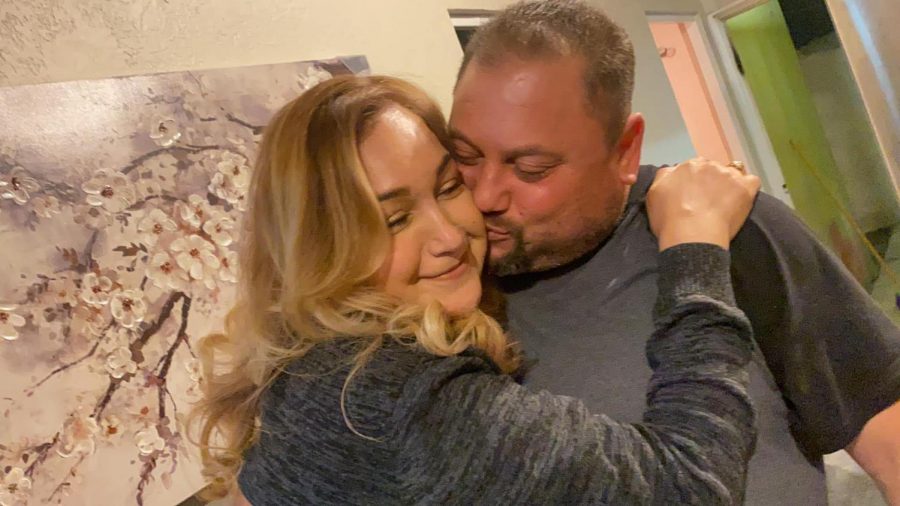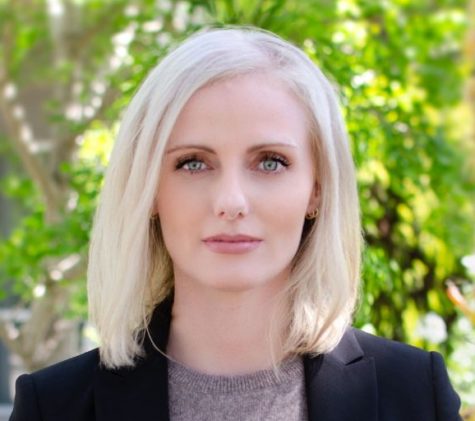MAGAZINE: 4 City College students share stories of hardship, pain at VAMP
Storytelling showcase allows students to turn painful experiences into beautiful performances
May 11, 2021
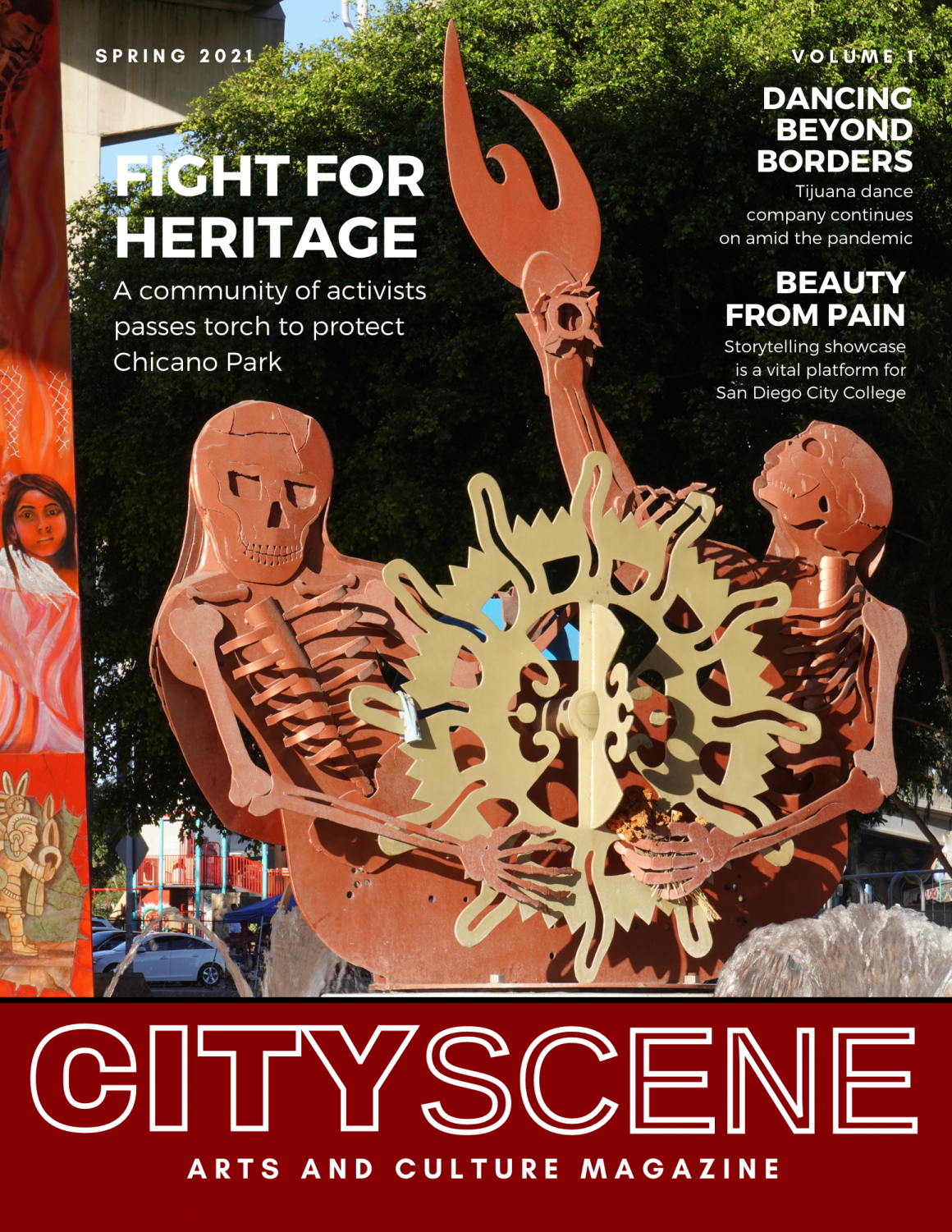 Click here to view the debut edition of CityScene magazine.
Click here to view the debut edition of CityScene magazine.
Unsure what to write about for an English 101X creative writing assignment, Ruby Rodriguez Chavez took the trolley to Seaport Village from her home in Tijuana, where she sat by the water to stretch and breathe unable to push away a memory that kept invading her thoughts.
The memory that pushed her to a place in her life when she didn’t want to wake up.
In October 2020, the family she has never lived without was ripped apart, her father deported to Mexico and her mother soon joining him there after 20 years living in the United States.
Still a teenager, Rodriguez Chavez wasn’t sure what would happen next.
To learn more about VAMP, click here.
Attending San Diego City College and working in the United States, she eventually moved to Tijuana to be near family and decided to commute.
This is the story shared by Rodriguez Chavez and selected for VAMP, a storytelling showcase created by community arts organization So Say We All San Diego, which provides opportunities for people to tell their stories.
“I became a victim of politics and the desire for power,” said Rodriguez in a performance of her piece, “Stop Separating Families.” “On that day, I learned how the system works.”
Rodriguez Chavez is familiar with traveling three hours a day by bus to get to school, spending her junior high and the majority of her high school years traveling from the home she previously shared with her family in Encanto to her school in La Jolla.
Her parents instilled in her when they risked everything to come to the United States to give her a better life that education is invaluable.
She also credits literature for teaching her wisdom and patience. “I Sing the Body Electric” by Walt Whitman and “Siddhartha” by Herman Hesse are among her favorites.
With wisdom and humility, Rodriguez Chavez looks at her situation with gratitude and her future through the lens of opportunity.
The most surprising part about VAMP for Rodriguez Chavez was the profound impact sharing her story and hearing others’ stories had on her as a human being.
“Even the other students were touched by my story,” she said. “They were crying and I was crying because of their stories as well.”
“That is exactly what motivates me, being that voice for other people, the people who can’t speak up for themselves, the people who don’t have much of an education.”
Rodriguez Chavez hopes to transfer to a four-year university to study psychology or possibly exercise science and nutrition and she will never stop using writing to amplify voices of those who cannot speak for themselves.
Devan Watson
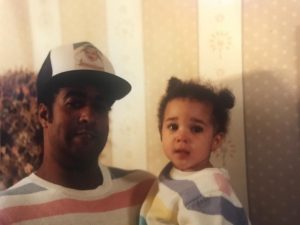
Devan Watson, in her piece titled “Wake Up,” beautifully contrasted the rural landscape of her childhood Missouri home with the hideous racism she experienced on a ride to elementary school with her father and younger brother that resulted in a life-changing encounter with police and her father being detained without cause.
“When I heard (my father) say, ‘please don’t shoot me in front of my children,’ the officer had already drawn his gun to do that and that was my dad bringing attention to the fact that we were even in the car,” Watson said. “Technically, we saved our dad’s life.”
This experience, never spoken of in her family again after the day it happened, was something Watson struggled with in silence until VAMP.
In sharing her performance and showing her family the incident through her childhood eyes, it changed them, opening lines of communication that had been blocked with fear for years.
Her first devastating encounter with the police at age eight, Watson would go on to have multiple unwarranted run-ins with the police, one of which had her taken into custody for 20 hours after she called them in fear of losing her life at the hands of her then-boyfriend, who was white.
The charges against her were later dropped.
Watson said the police are the last people she would call if she needed help or feared for her safety.
In light of the recent verdict in the Derek Chauvin trial and the current reckoning on racism and police brutality, Watson is cautiously optimistic.
Paradigm shifts, according to Watson, happen when many people make small, critical changes in behavior.
Elena Alcaraz
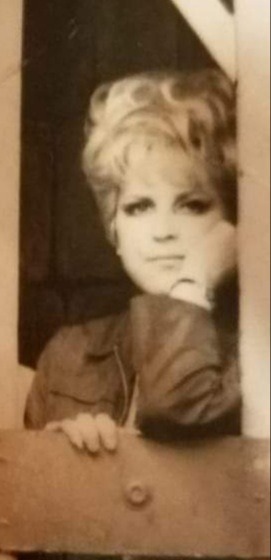
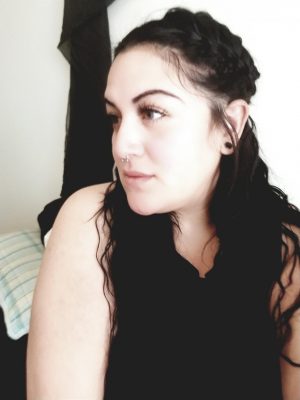
Walking through the ashes and what is left of her childhood home, Elena Alcaraz re-connected with the roots she is ashamed to admit she had forgotten about for so long and was inspired to write “La Casa de Las Rejas Rojas.”
“As I am walking around, I am seeing the spots where our dogs are buried and the trees, how there were still eggshells that she put there all dried up,” Alcaraz said.
“I would see her in this place and it felt really good, I don’t know why I could never go back before.”
Born in the United States to Mexican parents, Alcaraz spent her early years in Mexico before moving to the United States at the age of 13.
Alcaraz, who self-identifies as a border child and a product of two cultures and countries, never knew where she belonged.
“I tried to prove myself always, that I was American enough to be American and Mexican enough to be Mexican,” she said.
It was through her VAMP writing and performance that she found a part of her voice that she’s been repressing.
Her teachers in the United States never permitted the intertwining of both languages and she still didn’t quite believe her professors at City College when they encouraged her to amplify her multilingual capabilities.
“I hit the jackpot with City College and this atmosphere of such cultural acceptance,” Alcaraz said. “It gave me inspiration for me to keep writing about my experiences as a Mexican American border child.”
Alcaraz, currently majoring in psychology, plans to apply for transfer to Cal State San Marcos for her bachelor’s degree and to never stop writing.
Writing is an outlet she will always turn to for fun, “like a girl with her journal,” and to work through things going through her head, but she does not plan to make it a primary career.
Gimi Willie
For Gimi Willie, not knowing how to say goodbye to her mother and waking up to a world without her was something unimaginable.
“Now I think that last words are like funeral flowers,” said Willie, reading from “Last Words Don’t Mean Shit.” “If we don’t say them when they deserve to be said and wait until the end, you can’t do anything with them but sadly watch them wilt and crumble into nothing.”
Written at the airport after saying goodbye to her mother for the last time, Willie poured raw emotion into the piece, hoping for closure but never planning to perform it in front of an audience.
A lifelong writer, proclaiming that at the age of five, Willie has always used writing as a creative outlet.
An unexpected benefit of the pandemic for Willie was the ability to delve deeper into her writing through online classes, which pre-pandemic wouldn’t have fit into her busy schedule as a full-time working mom.
Additionally, the uncertainties in our lives that the pandemic has amplified gave Willie the push.
“I kept saying someday I will, and I think someday is knocking and I think a lot of us really had to take the opportunity,” Willie said. “What’s scarier than a pandemic?”
One of the most powerful things about VAMP, Willie said, was publicly taking ownership of her story.
“In this moment right now, when I am telling you this story, it’s mine and you get to see it through my eyes,” Willie said.


